Ultimate Morocco Trip Notes
Trip Overview
PrintPrepare to be swept away on an extraordinary 14-day expedition that traverses the captivating tapestry of Morocco’s diverse and alluring destinations. From the bustling metropolis of Casablanca to the coastal charm of Essaouira, each stop on this journey promises a unique experience that unveils the heart and soul of this remarkable country. Journey onward to the vibrant markets and cultural richness of Marrakech, then venture into the desert’s embrace in Zagora, where golden sands meet the horizon. The coastal allure of Agadir beckons with its pristine beaches and modern ambiance, and the charming town of Essaouira captivates with its historic medina and artistic soul. Join us as we embark on this 14-day exploration of Casablanca, Rabat, Meknes, Volubilis, Chefchaouen, Fes, Marrakech, Zagora, Agadir, and Essaouira – a transformative journey that promises to etch Morocco’s beauty and allure into your heart forever.
Duration : 14 Days
Destination : Morocco
Start/Ends in : Casablanca / Marrakech
Group Size :13-35 People
Age Req. : 18+
Trip Theme : Classic, Overland
Hotels : 4 Star
Departs : All Year Around
Why you will love this tour
- * This 14-day adventure offers a remarkable blend of experiences, from the coastal allure of Essaouira to the Saharan landscapes of Zagora, ensuring that every day brings a new and breathtaking backdrop to explore.
- * Recharge at hand-picked 4-star hotels.
- * Uncover the rich history of Morocco as you explore ancient ruins like Volubilis, discover the grandeur of imperial cities, and roam through historic medinas that have stood the test of time.
- * Relax and enjoy the journey with seamless travel arrangements, carefully chosen accommodations, and expert guides who will ensure you get the most out of each destination without the stress of planning.
- * Indulge in the sumptuous flavors of Moroccan cuisine, from aromatic tagines to delectable pastries..
- * Venture into the Sahara in Zagora, where you can experience the magic of the desert dunes, perhaps even with a camel ride at sunset, creating unforgettable memories against the backdrop of endless sand.
Arrival Details
The group welcome meeting with your guide and other travelers is held around 18:30 at the hotel lobby on Day 1 of your tour unless otherwise notified.
Meeting Point:
The meeting point for the tour is:
DIWAN HOTEL – Casablanca – 4 STAR
31 Bd Hassan Seghir, Casablanca 20000, Morocco
Phone : +212 5224-46514
Emergency Number: +44 203 14 99 200
Airport Transfers :
All tours starting in Casablanca include arrival airport transfer if your flight lands in Casablanca on the first day of your tour between 5am and 11:59pm or if you have booked pre-accommodation with us.
For tours ending in Marrakech, there is only one return shuttle to the airport on the last day of the tour between 05:00 and 15:00. Departure transfer is not available with post-accommodation in Morocco.
To arrange your airport transfer please email us the following information at least 2 weeks before your departure date. [email protected]
Travel Date, Flight Number, Local Arrival Time, Name/s of the Passengers
Finishing Point
The finishing point for the tour is:
WAZO HOTEL – MARRAKECH – 4 STAR
No9, Bd Abdelkarim Al Khattabi, Marrakech 40000, Morocco
Emergency Number: +44 203 14 99 200
Highlights
Djeema El Fna: The main square of Marrakech hosts many attractions and an authentic local market. Visit fortune tellers, watch snake charmers, and make deep connections with the local life.
Moulay Idriss: This town is in the north, spread over two hills at the base of Mount Zerhoun. It is famous for being the site of the tomb of Idris I, the first major Islamic ruler of Morocco.
Marrakech: Marrakesh, a former imperial city in western Morocco, is a home to mosques, palaces, and gardens. Pottery and jewelry is a symbol of the city.
Casablanca: The largest city of Morocco stands impressively on the coast of the Atlantic. This major city has a huge beautiful port and countless activities and venues to enjoy.
Fes: Fes is a northeastern Moroccan city very often referred to as the country’s cultural capital. it is primarily known for its Fes El Bali walled medina.
Ouarzazate: The “door of the desert”, Ourzazate is located just in the north of the Sahara desert. It is mainly inhabited by Berbers who built the famous Kasbahs.
Rabat: The capital of Morocco, is the second largest city and lies on the coast of beautiful Atlantic as well. The city was awarded second place in “Top Travel Destinations” of 2013.
Todra Gorge: The Todra Gorges are a series of limestone river canyons, or wadi, in the eastern part of the High Atlas Mountains in Morocco, near the town of Tinerhir.
Volubilis: Volubilis is a partly excavated Berber city in Morocco situated near the city of Meknes, considered as the ancient capital of the kingdom of Mauretania.
Ait Ben Haddou: Ksar of Ait-Ben-Haddou, established in 757, and listed as a UNESCO World Heritage Site in Morocco in 1987.Also used in parts of the TV series Game of Thrones.
Azrou: Azrou is a Moroccan town in the south of Fez in Ifrane, which means literally ‘rock’ in the local language, named for the large, black volcanic outcrop in the center of town.
Ifrane: Ifrane is a town located in Morocco’s Middle Atlas Mountains. It’s also known for it’s alpinestyle architecture and nearby ski slopes and forests.
M’Hamid: M’hamid is an oasis town isolated from the crowds. Hidden in the palm oases of M’Hamid are seven old and decaying Ksars. M’Hamid is also known as Bounou.
Zagora: Zagora is an amazing town in the Draa River valley in the Drâa-Tafilalet region of southeastern Morocco. It is referred as “the gate to the Sahara”.
Agadir: Agadir is the major coastal town on the coast of the Atlantic Ocean. Agadir is famous with its summer resorts and beautiful beaches as well as the sea foods in Agadir.
Essaouira: Located on the Atlantic Coast, Essaouira is famous with the powerful trade wind blowing onto the protected, calm bay. Very popular among windsurfers!
Itinerary
Please note that the itinerary may be subject to small changes depending on the conditions during the tour. Alternative accommodation of similar standards may be used depending on the group size and hotel availability.
Inclusions & Exclusions
The tour price covers the following services:
Accomodation : 4 star hotels, desert camp (Bedouin tents)
Airport Transfer : Arrival transfer on day 1 and return shuttle on the last day of the tour
Meals : 13 breakfasts | 1 lunch | 2 dinners
Transportation : A/C, modern coach or mini-bus, 4X4 Jeep.
Guide : Services of experienced Travel Talk local guides licenced by the Ministry of Tourism
Sightseeing : Saadian Tombs & Menara Gardens, Koutoubia Mosque, Bahia Palace & Dar Si Said, Hassan II Mosque, Anfa Residential Quarter, United Nations Square, Royal Palace, Museum Mohammed, Hassan II Mosque, Eloidaia Kasbah, Bab Bouloud Gate, Bou Inania Medersa, Mausoleum of Moulay Idriss, Quaraouiyine Mosque, Djeema El – Fna Square, Spices Market
What is NOT included in the tour price?
- Any flights not mentioned above
- Travel insurance
- Meals not stated above
- Items of a personal nature
- Tips & gestures
- Entrance fees to the sights and museums
- Optional activities
- Other services not stated in the itinerary
Hotels & Accomodation
Solo travellers will be roomed with another solo traveller of the same gender in a twin or triple room or can upgrade to a solo room by paying the single supplement. You may choose the solo room option when booking online or contact us to arrange a private room.
Your tour leader will allocate rooms upon arrival at the starting hotel in accordance with the rooming lists, last minute changes may not be guaranteed.
WAZO HOTEL – MARRAKECH – 4 Star
Located in Marrakech in the Marrakech-Tensift-Haouz Region, 4.1 km from Majorelle Gardens, Wazo Hotel boasts a spa centre and fitness centre.
DIWAN HOTEL – CASABLANCA – 4 Star
This hotel is located in the very heart of the city center, the ibis Casablanca City Center, close to the Old Medina and is only a 5-min walk from the New Marina and Hassan II Mosque.
ROYAL MIRAGE HOTEL – FES – 4 Star
KENZI AZGHOR HOTEL – OUARZAZATE – 4 Star
Located in close proximity to the city centre, Hotel Kenzi Azghor is an exquisite Ouarzazate boutique hotel; a unique concept in the region. From its well-known terrace.
CAMP SITE M’HAMID – CAMPSITE
It’s only an hour driving from Zagora, located in the Sahara, this camping site is decorated Berber style, accommodation includes open air folk-shows around the campfire, traditional foods.
CAMP SITE ZAGORA – CAMPSITE
This camping site is an amazing place to relax and to dive deep into nomadic spirit. Get ready for once in a lifetime experience around the campfire and under the sky on the sand dunes.
OASIS HOTEL & SPA – AGADIR – 4 Star
Centrally located in Agadir and only 200 metres far from the beach, has a gym and most rooms have sea views. This hotel offers an amazing spa experience to it’s guests.
HÔTEL DES ILES – ESSAOUIRA – 4 Star
An ideal location at the gates of Essaouira’s old city, in front of the sea and the port, making it a great base for relaxing getaways. Built in 1948 by Antoine Marchisio.
Distances
Please find below the distances between the sights visited in Morocco and the approximate driving times. We will always strive to take a short break every few hours to enable passengers to stretch their legs, purchase snacks and use wash facilities during long drives.
Marrakech – Casablanca: 243 Km – 2.5 hrs
Casablanca – Rabat: 85 Km – 1 hrs
Rabat – Fes: 210 Km – 2.5 hrs
Fes – Dades Valley: 540 Km – 8.5 hrs
Dades Valley – Ouarzazate: 140 Km 2 hrs
Ouarzazate – Marrakech: 190 Km – 3.5 hrs
Mhamid – Agadir: 560 km – 7.5 hrs
Agadir – Essaouira: 175 Km – 3 hrs
Essaouira – Marrakech: 180 Km – 3 hrs
Budgeting
Please note that entrance fees to sights and optional activities are not included in the tour price. Optional activities are not operated by Travel Talk and may require a certain number of attendees to run. Your guide will be happy to inform you further about the available optional activities at the start of your tour. Optional activities are also listed under each day in your tour itinerary.
Entrance Fees
Marrakech
Bahai Palace — 70 MAD
Saadian Tombs— 70 MAD
Said Mausoleum — 70 MAD
Fes
Bou Inania Medersa — 10 MAD
Atterine Medersa — 20 MAD
Casablanca
Hasan II Mosque — 130 MAD
Taorirt Kasbah — 20 MAD
TOTAL 390 MAD (approx. 45 USD)
Optional Activities
Please note that optional activities are not operated by Travel Talk.
Moroccan Hammam — 300 MAD
Dinner Show — 300 MAD
Group Dinner — 120 MAD
TOTAL 670 MAD (approx. 80 USD)
Personal Spending
The currency of Morocco is the dirham (MAD), with bank notes found in the denominations of MAD 200, 100, 50 and 20 and coins issued in smaller values. While every traveller’s spending habits may differ slightly, we have estimated the average daily expenses to help with budgeting for your next trip. Here you’ll find the average cost for a meal or drink and advice for best practice in tipping.
Meals
Lunch at restaurant: US$ 7-10
Dinner at restaurant: US$ 12-16
Sandwich at a stall: US$ 1-2
Sfenj – Moroccan Donut: US$ 0.30
Drinks
Bottle of water: US$ 0.5
Coffee: US$ 1.5-2
Tea: US$ 1-2
Bottle of beer: US$ 2-4
Tipping
Tipping is not compulsary, but is encouraged for good service in Morocco. The general rule of thumb is to tip 5~10% in restaurants or to private services such as porters. Your guide and driver would also appreciate this kind of gratitude at the end of your tour. For Taxi Drivers, typically rounding up the fare for convenience is recommended, as well as at market stalls.
Shopping
Morocco is home to some of the oldest retail cultures in the world, meaning there’s no shortage of souqs waiting to be explored. Haggling in Morocco is expected and welcomed. You’ll notice prices are not often listed on items in the souqs, so evaluate what you’re willing to pay and come prepared to bargain with the shopkeeper – it’s all part of the fun!
Leather Goods
Moroccan leather is highly unique and the centuries-old tanning techniques are still practiced across the country today. The most famous tannery is Chouara Tanner of Fez, making it the perfect place to purchase quality, hand-crafted leather goods including slippers, bags, jackets, belts and wallets. Prices for leather goods start at approximately 10 USD.
Berber Rugs
Berber rugs and carpets are traditionally the craftwork of nomadic women from the Middle Atlas region and date back to the 2nd century BC. They are made from virgin wool from the sheep and can be found in souqs across Marrakech in all shades, sizes and shapes. Rug shopowners will encourage you into their store with the offer of tea, but feel no obligation to buy. Rug prices may range from 50 to 1,000+ USD.
Argan Oil
Used by the local Amazigh people for its healing properties, Argan Oil is immensly popular in Morocco. It is common to see women sitting on the front step of beauty shops crushing the kerns of the argan tree into paste, which is sold cosmetically for its healing properties to skin and hair. The regions surrounding Essauira and Agadir are the only places in the world where the specific tree grows. In this region you can purchase a quality 150ml bottle of the oil for approximately 20 USD.
Travel Advice, Visas & Insurance
Travellers from the United Kingdom, Australia, New Zealand, USA, Canada, Ireland and Germany do not require a visa to visit Morocco for up to 90 days. South Africans require a visa in advance, which can take several weeks to obtain.
Please ensure that you check with the Moroccan Embassy or Consulate of your country for up-to-date visa information. You may visit the consular website for the latest information: https://www.consulat.ma/en
Passport validity entry requirements: The validity of the passport or travel document must be longer than the duration of stay. We generally recommend to have a passport or travel document that is valid for at least 6 months’ from your travel date
Passport validity entry requirements: Travellers entering Morocco must also carry a passport or travel document valid for at least 6 months from your arrival date.
This information is provided as a guidance, we strongly advise that you check with the consulate or embassy as this information can change. Please note, visa costs can change at any time and with little notice depending on the political climate of the region. It is your responsibility to make sure that all the required travel documents are ready when travelling. For more details, visit our Morocco travel advice page.
Travel Advice
We are closely monitoring the latest travel updates to Morocco and follow the advice of the UK Foreign Office (FCDO). For the latest travel advice from the UK Foreign, Commonwealth & Development Office, https://www.gov.uk/foreign-travel-advice/morocco
We recommend all travellers to check their Government National Travel Advisory prior to their departure:
Australia – https://www.smartraveller.gov.au/
Canada – https://travel.gc.ca/
New Zealand – https://www.safetravel.govt.nz/
USA – https://travel.state.gov/
Travel Insurance
All passengers travelling with Travel Talk are required to have personal travel insurance before participating in any of our tours. Your guide will collect your travel insurance details on the first day of your trip. It is your responsibility to make sure you have an adequate and suitable travel insurance for you in place, you may read more at https://www.traveltalktours.com/travel-insurance
Health & Safety
The health and safety of our passengers, staff and communities visited is of utmost priority. As we monitor and comply with the official advice from the UK Foreign Office, as well as World Health Organization and government authorities regularly, we have implemented several policies and precautions on our tours for your wellbeing. You may find our Safe Travels Protocols at https://www.traveltalktours.com/safe-travels
Travel Talk Adventures has received the Safe Travels stamp by the World Travel and Tourism Council (WTTC), which allows travellers to recognise companies around the world that have adopted health and hygiene global standardised protocols – so consumers canexperience ‘Safe Travels’.
Please make sure to regularly check your Government’s travel advice before travelling and be well-informed of any requirements. Your tour guide will also notify you of the regulations and protocols to follow throughout your trip with us.
Please note that if any traveller is unable to complete the itinerary or possess a potential risk to themselves and/or the rest of the group, we reserve the right to remove them from all or part of a trip.
Please consult with your doctor for the latest medical travel information and any vaccinations you may need. We recommend that you bring any personal medical requirements and medications with you as these may be difficult to obtain while on tour.
Weather
The Moroccan climate varies according to season and region of the country. The Atlantic coast experiences minor temperature variations with 30°C summers and a warm Mediterranean climate all year round. November through to March sees the most rain fall in the coastal areas. Meanwhile, the climate in southern Morocco and inland can become more extreme with hot days and almost no rain. We strongly recommend bringing a set of light-weight long clothing, sunscreen, sunglasses, and hat to protect yourself. Overall, the best time to travel is considered March to June and September to December.
Check out our weather guide for the best time to visit Morocco.
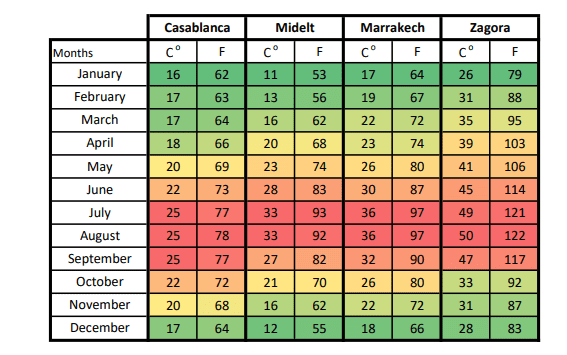
Money Matters
The dirham (MAD) is the official currency of Morocco, with bank notes found in the denominations of MAD 200, 100, 50 and 20 and coins issued in smaller values.
Major credit and debit cards are widely accepted in most cities and tourist sites across Morocco. However, if you are travelling off the beaten track, come prepared with a small stash of cash on hand for inexpensive purchases at local markets, souqs or for entrance fees and small meals. ATMs can be easily found in many places across the cities, however, are not as common in rural areas. We recommend you do not exchange bulk sums of money at the airport, as the exchange rates are usually more favourable in the major cities. Your tour leader will be happy to help if you need any assistance
Please remember that everyone has different spending habits, some prefer to spend more on souvenirs, some on experiences and others on a night out! Make sure to budget your trip to your spending habits for shopping, drinking, and tipping.
Tipping is not compulsory but is encouraged for good service in Morocco. The general rule of thumb is to tip 5~10% in restaurants or to private services such as porters. Your guide and driver would also appreciate this kind of gratitude at the end of your tour. For Taxi Drivers, typically rounding up the fare for convenience is recommended, as well as at market stalls.
Eating & Drinking
Moroccan cuisine carries an exciting blend of Mediterranean, Middle-Eastern, West African and Berber influences. The typical diet is quite healthy and incorporates plenty of vegetables. Moroccan cooking is strongly characterized by the subtle blending of spices, and Moroccans expertly use them to enhance, rather than mask, the flavor and fragrance of their dishes. Searching for unique and authentic dishes can often be overwhelming if you’re not a local, so here’s a few must-try dishes to get you started in Morocco.
For more, check out our Morocco Food Guide.
Tagine: The famous slow-cooked Moroccan stew takes its name from the traditional clay or ceramic dish it is traditionally cooked in. The ingredients are arranged in a conical fashion and left undisturbed to cook until tender. Tagine is traditionally eaten straight from the cooking vessel.
Couscous: Originally from Morocco, Couscous is small balls of soft wheat or barley flours that are steamed in a pot. The traditional North African dish is typically served with meat or vegetable stew and is often eaten using your hands.
Zalouk: Zalouk is a common side dish of crusty bread and spread made from eggplants, tomatoes, garlic, olive oil and spices
Harira: Used during Ramadan to break the fast at dusk, Harira is a hearty, traditional Moroccan lentil soup.
Khobz: Typically baked in communal wood-fired over and served with an array of meals, this crusty bread is a must-try in Morocco.
Mint Tea: A grean tea base with lots of mint leaves and sugar, making for a refreshing drink
Pastilla: A traditional pigeon meat pastry made from dozens of different layers of thick flaky pastry.
Baghrir: Usually eaten at breakfast, these bubbly, sweet pancakes are a standout for many travellers to Morocco. What makes them different to Western pancakes is that they are made with semolina, thinner than flapjacks but thicker than crepes.
Chebakia: Soaked in the syrup of honey and rosewater, then sprinkled with sesame seeds – this sweet, fried pastry can be found in many corner shops and bakeries, especially during Ramadan.
M’hanncha: Translating to ‘coiled like a snake’, this large, coiled sweet pastry is meant to be shared. It can be cut into smaller pieces and pulled apart to reveal almond paste, pistachios and a sugary paste
As well as the traditional dishes there are also a lot of western style foods available in the larger cities. Kebabs can also often be found in many souks or stalls and are generally served with a spicy sauce.
Morocco’s national drink is mint tea, a green tea flavoured with springs of mint and sweetened with large amounts of sugar. Also common at cafes and street stalls are a range of freshly squeezed juices and mixed fruit milkshakes! Moroccan tap water is usually considered as safe to drink, however may upset your stomach if not used to it. Hence, we would recommend to drink bottled water which is readily available throughout the country. Morocco typically gives drinking alcohol a low profile, but bars in most tourist areas stay open to late and wines, beers and spirits are widely available with laws around alcohol liberal for visitors. Local beers are relatively inexpensive and a few worth trying include Flag, Stork and Casablanca.
Essentials to Bring & Internet
-Face mask/cover and hand sanitiser enough for your personal use throughout the trip – See more at https://www.traveltalktours.com/safe-travels/
-Travel Documents: Passport, Visa (if required), flight or transport ticket (and photocopies)
-Travel Talk Tour Voucher (printed or digital)Travel Insurance Policy (and photocopy)
-Personal medical kit and medicine
-Money (cash, credit card, travellers’ cheques)
-Power Adapter
-Reusable water bottle
-Ear plugs and eye mask
-Sun protection – hat, sunglasses, sunscreen
-Comfortable, closed walking shoes
-Wind/water proof jacket
-Warm clothes, hat, and gloves for cold weather
-Sandals, swimwear, shorts for warm weather
Important: If your tour runs in the months from November to March, we recommend you bring a sleeping bag with you as the weather can be cold at night time (especially in the desert).
Internet Access
Most cafes, hotels and restaurants in large cities of Morocco provide free Wi-Fi, but the connection may be spotty or slow. If you wish to use your own 3G/4G Data, be sure to enable data roaming on your mobile. Purchasing a Moroccan SIM card for the duration of your tour may be a cost-effective alternative. Make sure that your phone is unlocked before you leave home so a local SIM will be compatible. The three largest telecommunications networks operating in Morocco are Maroc Telecom, Inwi and Orange. Your guide will be happy to advise on this.
Culture and Traditions
Over centuries of trade and mutual interaction, Moroccan culture and traditions have been significantly influenced by the surrounding people and nations. Located at the tip of North Africa, Morocco has been the gateway between Europe and Africa, while also neighbouring both the Atlantic and the Mediterranean. This unique blend is beautifully reflected in various facades of Moroccan culture from architecture to music… Most of the Moroccan society can be considered traditional, with respect for elders, connection to family and giving alms to the poor recognised as hallmarks of everyday life for locals.
Ramadan carries great importance for the nation and is considered a time of spiritual rejuvenation in the Islamic calendar. During this month, Muslims fast from sunrise to sunset – refraining from eating, drinking or smoking during daylight hours. As a Muslim country, Morocco is a modest nation who deeply respects religion. If you’re planning to go on a holiday to Morocco during Ramadan, please be mindful that many restaurants and shops will either be closed or operating on reduced hours during this time.
Religion, Etiquette, and How to Dress
Morocco is a tolerant, yet traditional nation with strong cultural values. Religion is a crucial factor in the life of Moroccans, and it is intermingled with daily activities. It is estimated that more than 98% of the population is Muslim, and the way people dress and interact with each other is influenced by religion. The religious holidays of Ramadan and Eid are the most significant events for Muslims. A wide array of cultural norms, including how people dress and interact with the opposite sex, are influenced as such. Especially in the rural areas, conservative clothing may be preferred.
As a general guideline, we recommend wearing loose-fitting, comfortable clothing and walking shoes while travelling in Morocco. Please also keep in mind that when visiting religious sites, appropriate attire is required. It is recommended to pack at least one set of modest clothing that covers both shoulders and knees, to be worn when visiting mosques and other religious complexes. A headscarf for women is necessary when visiting religious complexes in Morocco. Access to certain mosques and holy places is forbidden to non-Muslims, much to the disappointment of many tourists.
Solo Travellers
We have many solo travellers joining our tours. Solo travellers will be roomed with another traveller of the same gender. If you would like a private solo room, please contact us. You may see out solo travels page for more details.
Rules to Follow
We are committed to ensuring a safe and enjoyable experience for everyone. We do not tolerate any form of violence (physical or verbal), bullying or harassment involving customers, partners, Travel Talk staff or locals. Sexual relationships between a tour leader and a passenger are forbidden.
We will not tolerate any illegal activity, including but not limited to: use and possession of illegal drugs, trespassing, and disrupting public order. If you consume alcohol, please ensure that you drink responsibly and follow the local laws and regulations.
You must follow the advice of your tour leader and local officials regarding health and safety measures. We operate all tours under Safe Travels protocols for the wellbeing of our passengers, staff and communities visited. Please ensure that you have read the https://www.traveltalktours.com/safe-travels/ and are fully prepared for your trip.
If someone is acting inappropriately regarding these matters, please notify your tour leader immediately or contact us on the emergency contact number provided below.
Your tour leader has the right to remove from the group anyone not abiding by these rules, with no right of compensation or refund. See more at https://www.traveltalktours.com/booking-terms/
Please remember that our travellers come from different parts of the world and will have various needs and preferences. Be understanding and patient with your fellow travellers, and always strive to be on time.
Responsible Travel
We believe that travel is a force for good and show our support through various initiatives and charity organizations, as well as keeping the principals of responsible and sustainable travel at the core of our ethos. These values are engrained in our business culture and the design of our trips just the same. Together with you, we strive to make a positive impact on local people and economies, respecting the local culture, environment, social fabric and customs; encouraging respectful and meaningful cross-cultural exchange. Read more at https://www.traveltalktours.com/responsible-travel/
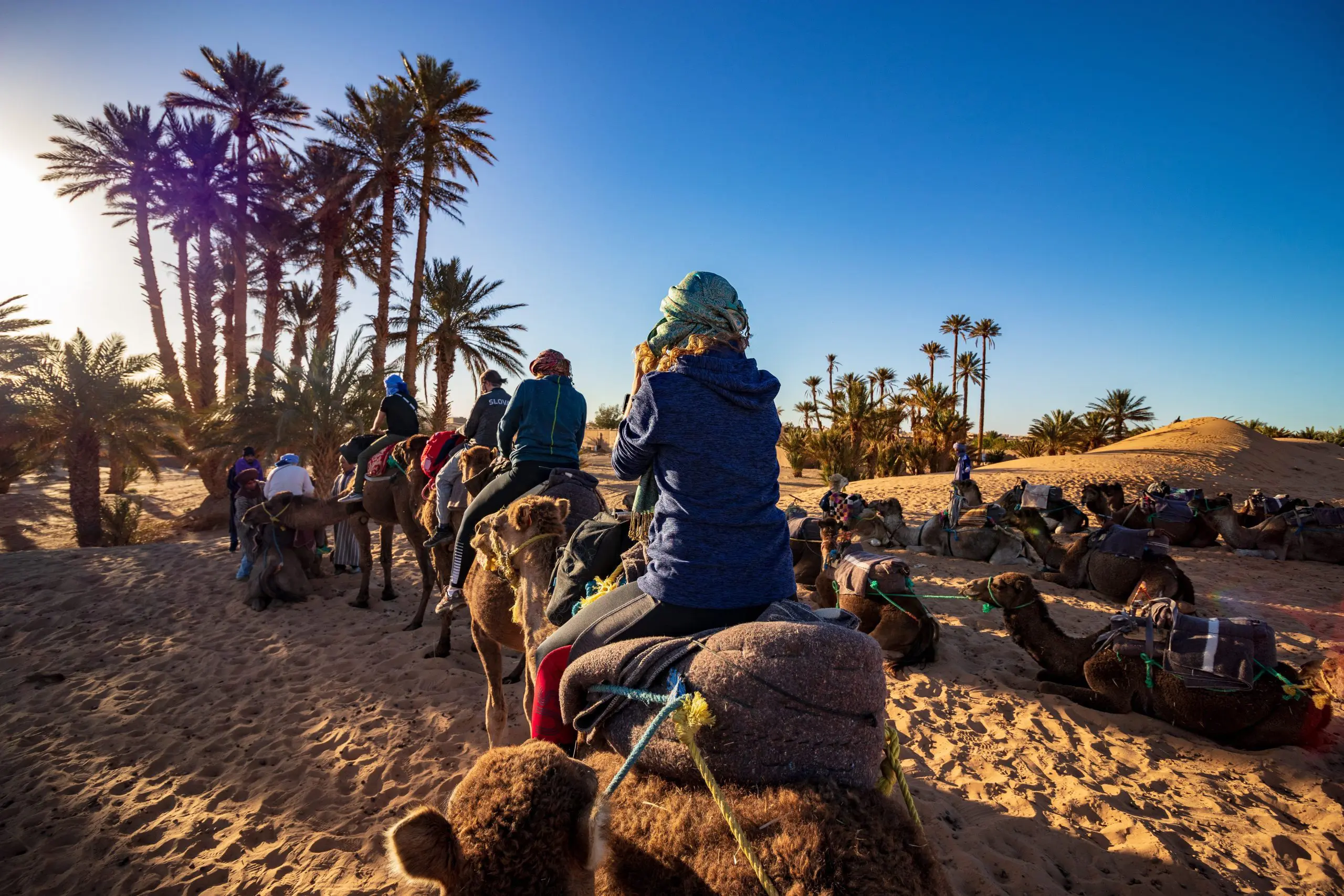 December Sale; Save 50%
December Sale; Save 50%  Croatia Sailing : Save 50%
Croatia Sailing : Save 50% Asia Tours : 50% Off
Asia Tours : 50% Off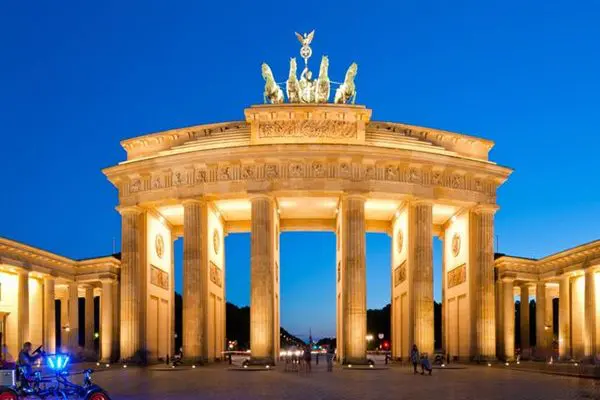 Central & Eastern Europe Tours: 50% Off
Central & Eastern Europe Tours: 50% Off 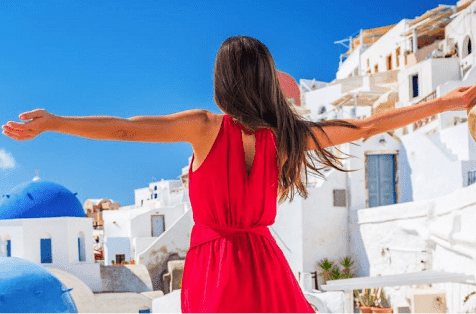 Why Travel Talk
Why Travel Talk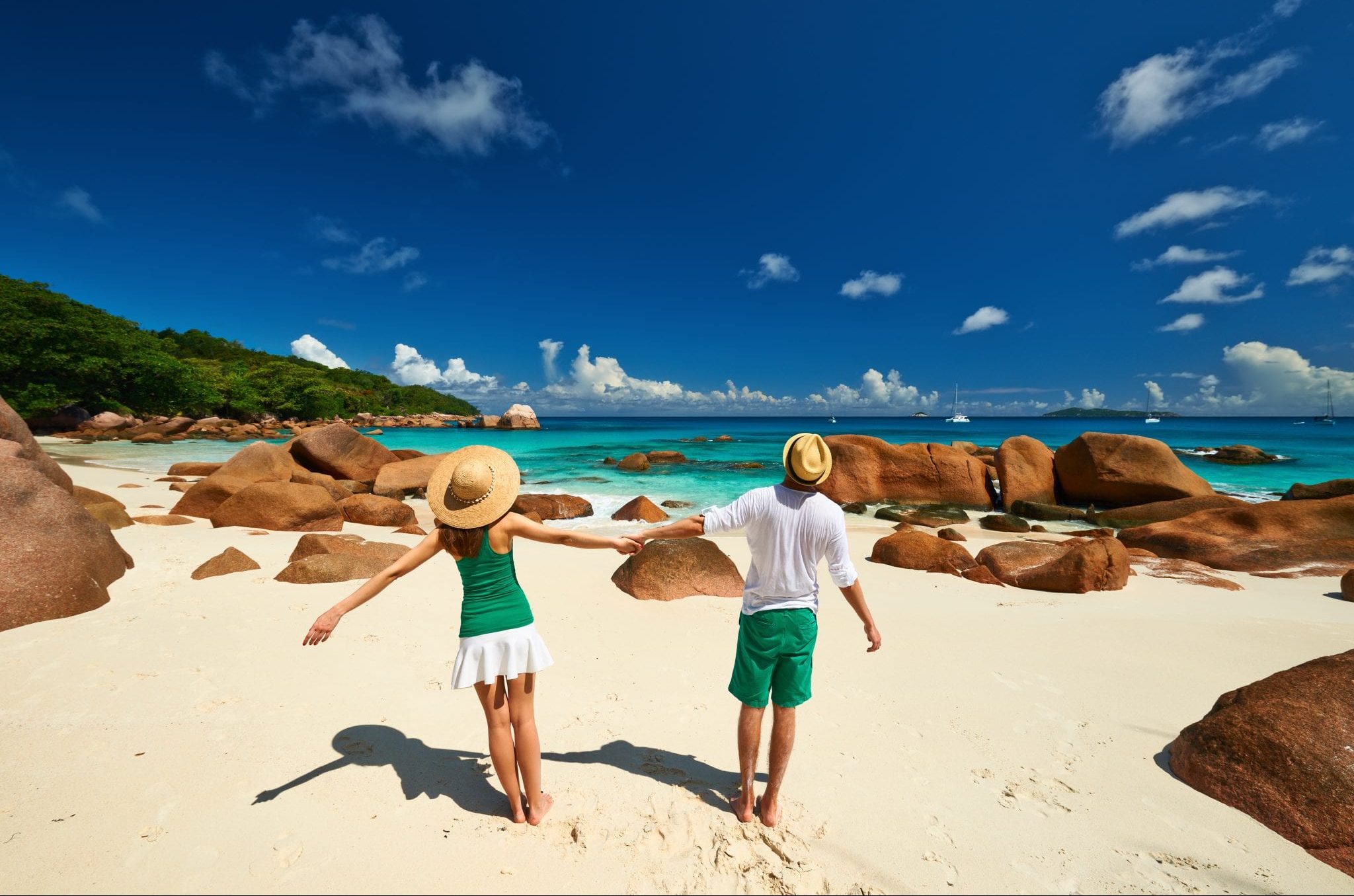 Travel Talk Blog
Travel Talk Blog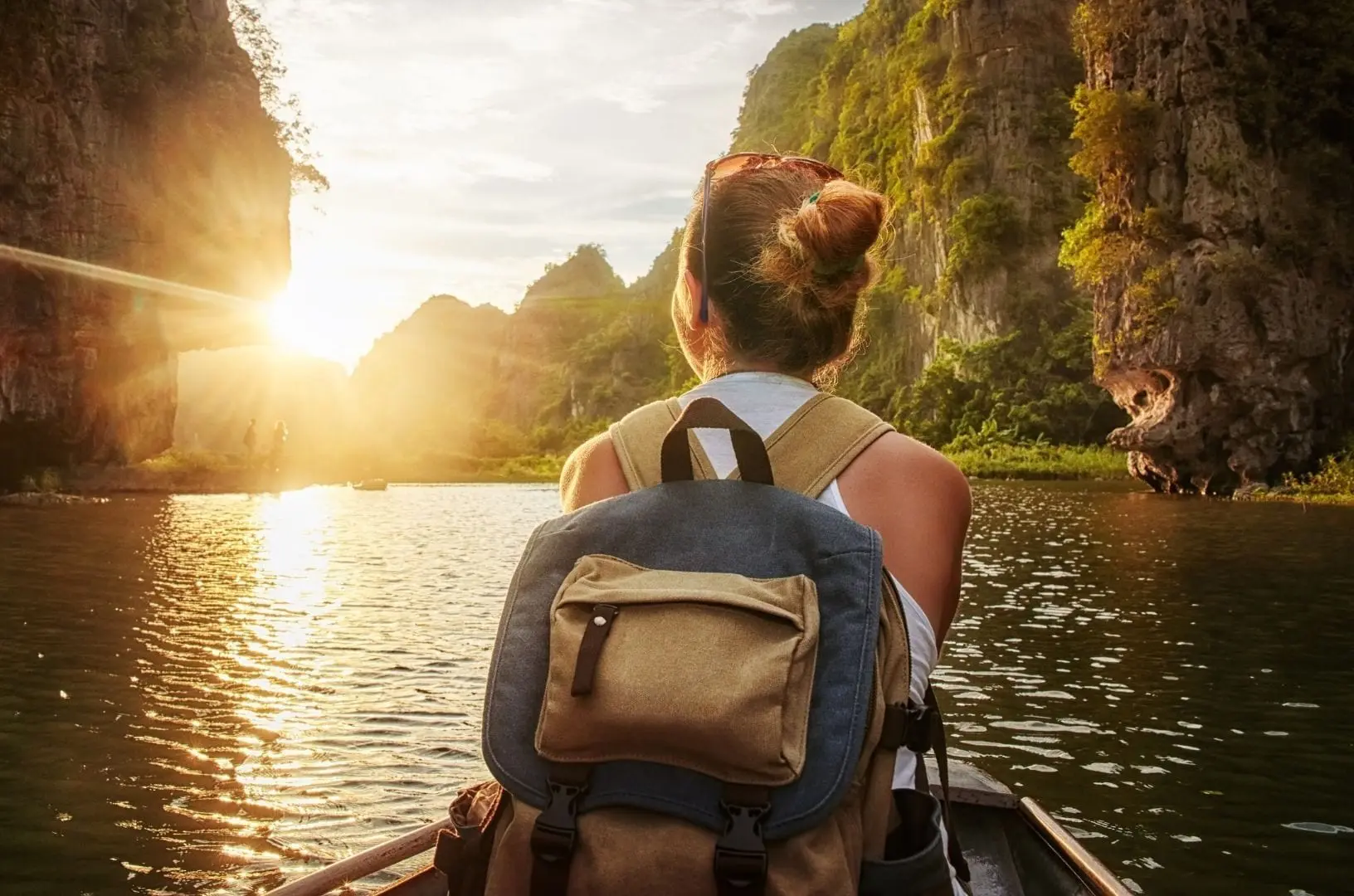 Responsible Travel
Responsible Travel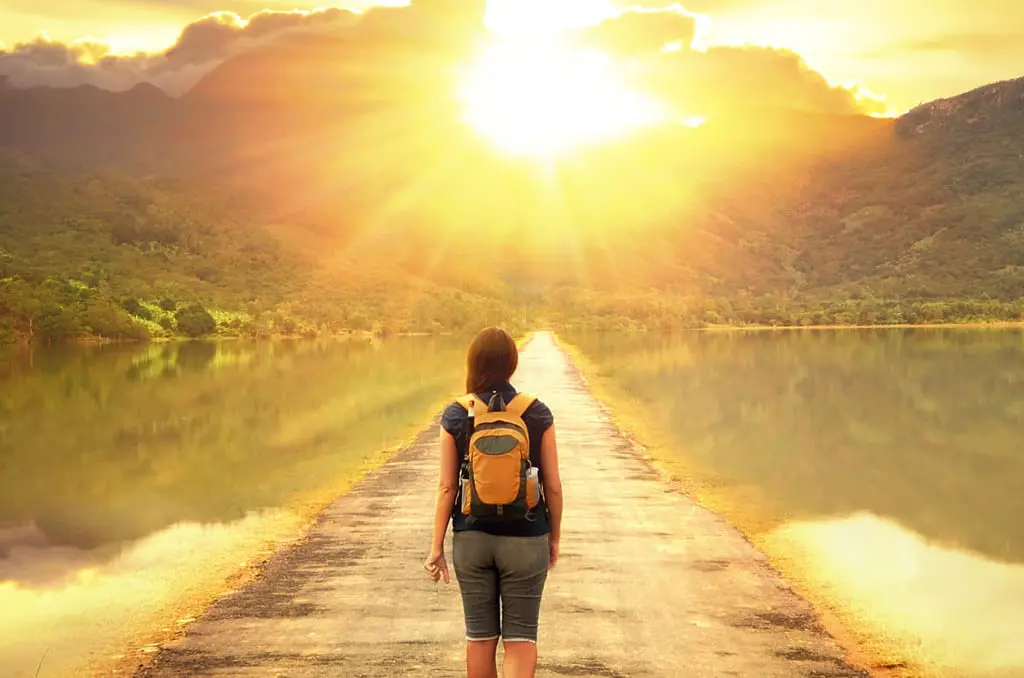 Fair Travels with Travel Talk
Fair Travels with Travel Talk